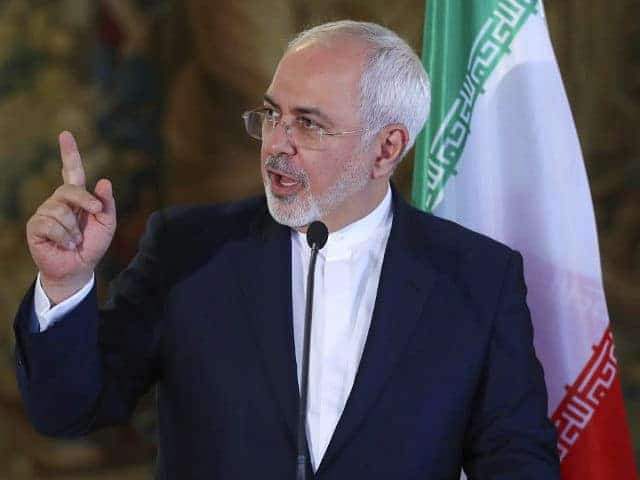Iran Negotiating 25-Year China Deal ‘with Confidence and Conviction’

Iranian Foreign Minister Mohammad Javad Zarif reported to the Iranian parliament on Sunday that negotiations for a 25-year bilateral trade deal with China are proceeding with “confidence and conviction.”
Legislative critics of President Hassan Rouhani were angry about the deal because Rouhani recently approved Iran’s participation without consulting parliament, and they questioned the true status of negotiations with China that have been in progress for four years with no declared end in sight.
Radio Free Europe (RFE) described Zarif’s “fiery exchange” with members of parliament as a defensive play by the allegedly secular wing of the Iranian regime, which is under heavy fire from hardline theocrats who regard Iran’s nuclear deal with the U.S. and Europe as a disaster. The hardliners charged Iran was not getting enough from the deal even before President Donald Trump withdrew the United States from the agreement, formally known as the Joint Comprehensive Plan of Action (JCPOA), in May 2018.
Zarif was essentially arguing that the JCPOA is no longer that important because Iran will soon have a huge bilateral trade deal with China, delivering on a negotiating process that began when Chinese dictator Xi Jinping visited Tehran in 2016.
As RFE noted, China is already Iran’s top trading partner and number one customer for its oil but, presumably, the Rouhani administration believes the bilateral deal would take this relationship to a much higher level and erase the impact of U.S. and European sanctions. Zarif touted the deal as enabling Iran to return to China’s Belt and Road Initiative (BRI), a program many foreign critics – and evidently some Iranian parliamentarians – regard as a form of Chinese colonialism driven by debt instead of military conquest.
Rouhani’s opponents in the legislature were having none of it. RFE reported they “heckled” Zarif for his role in negotiating the JCPOA, accused him and Rouhani of “betraying the people,” and ominously warned they would be “held accountable” for their failures. The Iranian parliament is currently considering a measure that would summon Rouhani for a hostile interview and effectively begin the process of impeaching him.
Emboldened by their legislative strength after doing very well in Iran’s February elections, the hardliners called Zarif a “liar” and even wished death upon him. The normally smooth and reserved foreign minister responded with uncharacteristic vitriol and sarcasm.
“If I lied, the Supreme Leader heard it and said Zarif is honest, and if I said the truth, he heard that too and said Zarif was brave,” Zarif replied with what Radio Farda described as a “forced smile,” quoting praise from Supreme Leader Ayatollah Ali Khamenei in his defense.
The UK Guardian reported that Zarif tried playing on his close working relationship with Gen. Qasem Soleimani, the Iranian terror master who was liquidated by a U.S. drone strike in January after coordinating attacks on American forces in Iraq and the U.S. embassy.
“You can say whatever you want, but the martyr Suleimani and I had weekly meetings. We coordinated with each other every week. In regional talks, whatever we did we coordinated with each other. Those who know Soleimani … and the Iraqi, Lebanese and Palestinian resistance, they know, and not you,” Zarif shouted at his parliamentary hecklers.
Radio Farda noted a similar heckling was delivered to Rouhani’s communications minister two weeks ago, and his oil minister looks to be next in the hot seat, judging by social media comments by the hardliners.
Reading the tea leaves for Rouhani’s true standing in the eyes of the elderly Supreme Leader is not easy. Radio Farda speculated Khamenei might allow the legislature to summon Rouhani for questioning and give him hell on the stand, but would stop them from actually impeaching him. The hardliners appear convinced Khamenei is running out of patience with the president and is disappointed with how his team has handled negotiations with China, contrary to Zarif’s assurances.
Photo: AP Photo/Petr David Josek











